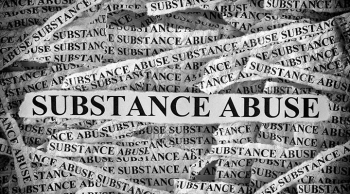Suicide is complicated. Experiences prior to, during and following military service, coupled with stigma associated with help-seeking behavior, have resulted in elevated suicide rates among Veterans. Many experience physical and emotional wounds in silence.
Suicide is a tragic and preventable outcome. It affects not only our Veterans, but also their families, friends and communities across the nation.
There is no “one single reason” why an individual dies from suicide. So, too, there is no “single solution” for suicide prevention.
Relationship between substance use and suicide
The public is keenly aware of some key risk factors for suicide among Veterans. Examples are depression, chronic pain, firearm access or social isolation. But it is also often unaware of the devastating relationship between substance use and suicide.
The 2020 National Veteran Suicide Prevention Annual Report showed that Veterans Health Administration (VHA) users diagnosed with substance use disorders (SUD) had higher rates of suicide than those with depression or post-traumatic stress disorder.
Rates were amongst the highest for patients with opioid use disorder (OUD). These statistics must motivate action. Addressing a Veteran’s SUD, especially OUD, is critical for suicide prevention efforts.
Reduction goal
The National Action Alliance, buoyed by the efforts of the American Foundation for Suicide Prevention, has endorsed a goal to reduce rates across the nation by 20% by 2025.
Achieving this goal requires in-depth collaboration in those areas where we see significant risk. SUD is one such area. Thankfully, there are highly effective, evidence-based treatments for SUD that include a variety of proven therapies and medications.
For OUD, there are lifesaving medications (such as buprenorphine) that have transformed countless lives. VHA has been working tirelessly to increase access to, and engagement in, SUD treatment. Treatment includes these lifesaving medications.
Our nation has made great strides in the ongoing efforts to reduce stigmas and help people into care. Those same strides are critical to reducing SUD-related stigma and getting Veterans with SUD the care they need and deserve.
Courage and support
We know those strides require courage and support to seek SUD treatment. A direct strategy to reducing the rates of suicide in our nation is to address the SUD-related needs of Veterans.
If you or someone you know is struggling with substance use, help is available. Visit Substance Use Disorder (SUD) Program – Locations (va.gov) or Home – SAMHSA Behavioral Health Treatment Services Locator.
We all need to work together to address the nexus of suicide and substance use. We need to spread hope and encourage treatment.
Veterans can learn more about VHA enrollment at Apply for Health Care | Veterans Affairs (va.gov). Veterans enrolled with VHA and needing to fund substance use treatment can visit Substance Use Disorder (SUD) Program – Locations (va.gov).
Veterans and first responders interested in seeking care at Forge Veteran & First Responder health care can seek help at Mental Health Care Services for Veterans & First Responders – Forge Health.
Help is available
If you’re a Veteran having thoughts of suicide or you know one who is, contact the Veterans Crisis Line 24/7/365 days a year. Call 1-800-273-8255 and press 1, chat online at http://veteranscrisisline.net/Chat, or text to 838255.
Media resources
Media covering this issue can download VA’s Safe Messaging Best Practices fact sheet or visit www.ReportingOnSuicide.org for guidance.
Topics in this story
More Stories
Every VHA Health Care System now includes at least one team recognized as an Age-Friendly Health System.
VA’s Program of Comprehensive Assistance for Family Caregivers (PCAFC) includes legal and financial planning services to support the unique needs of injured Veterans and their primary family caregivers.
Music can have a positive impact on Veterans facing dementia.







A program tried to cut opioid addiction among veterans. Did it cause suicides? – The Washington Post
“A program tried to cut opioid addiction among veterans. Did it cause suicides? – The Washington Post” https://www.washingtonpost.com/outlook/2021/08/24/opioids-veterans-suicides-interventions-safety/
There is no way anyone could trust a VA diagnose of OUD after abandoning cancer and chronic pain patients for years. The statistics from these medical records used in these studies are cooked, many OUD diagnosis follow after forced discontinuation of opioids in arbitrary, unilateral and unsupported ways in complex patients. The VA creates crisis in patients then when the patient is at thier thier most vulnerable they label it OUD which leads to patients dropping from care because no one will assist them due to OUD. Once isolated by the VA and labeled a drug abuser oversight and treatment become unavailable.